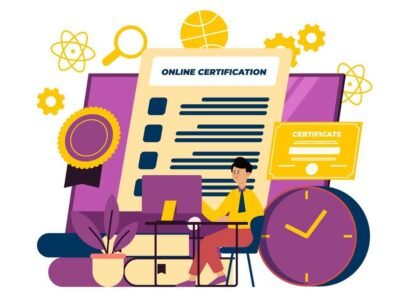
Empowering Young Minds: Integrating Essential Life Skills Into Homeschool Education
Research shows that for the 2021-2022 school year, roughly 6% of school-aged children in the U.S. were homeschooled. Parents and caregivers all have their own reasons for wanting to homeschool. Still, no matter your reason, it’s important to understand the opportunity you have when you choose to educate your children yourself.
When you homeschool your kids, you can integrate essential life skills into their education, helping them become well-rounded individuals who know what to do in real-world situations. Homeschooling can also be a great opportunity to foster independence in your children from an early age.
Now, standard curriculum is still important and shouldn’t be ignored. But, don’t back away from the opportunity to teach your children the things they’ll use in their everyday lives as adults. Let’s cover a few of them.
Personal Finance
One of the greatest gifts you can give your homeschooled student is the knowledge of knowing how to handle their finances. Kids tend to learn economics in school, but they don’t always dive deeper into things like building a budget, balancing a checkbook, or knowing how to do taxes. You can incorporate those lessons into your economics class at home and give your kids the resources they need to understand financial success.
Consider having them create a budget for themselves based on the career they’re interested in and how they plan to live when they graduate. They might be surprised by how much things cost, which offers you another opportunity to talk about things like taxes and inflation.
Another fun activity is teaching your kids how to save money. One of the best and easiest ways for your kids to save is with a 52-week challenge. Have them save one dollar in an envelope the first week of the year, then add a subsequent dollar every week. By the end of one year, they’ll have over $1,300 saved up. If your child is too young to have their own money, you can do this savings challenge yourself and then get them involved. It will show them that you’re being financially responsible and demonstrate the importance of saving money.
Emotional Awareness in Homeschool Education
Many of the traits that make a good teacher are equally valuable for children to learn. Learning to be even-tempered, communicate well, and show compassion for others is essential for success in education (whether as an educator or student) and adulthood. Incorporating emotional intelligence into education provides lifelong benefits, including reducing the likelihood of anxiety and supporting overall mental well-being.
Key benefits of focusing on emotional regulation and self-awareness include:
- Stress management: Teaches children to respond to challenges constructively.
- Enhanced relationships: Encourages empathy and better communication with others.
- Academic success: Emotional stability supports focus and perseverance.
- Mental health resilience: Reduces the risk of anxiety and other challenges in adulthood.
Safety Skills
Most schools have fire safety days, but they typically only happen once or twice a year, and it can be difficult for your child to put what they learn into practice when they’re hearing about it at school and not in their home setting.
Teaching your child home safety while you’re actually in the home is a practical and effective way to improve their skills. Create fire safety days of your own, and discuss some of the leading causes of house fires, like:
- Cooking;
- Heating;
- Electrical systems;
- Smoking.
You can also discuss what can be done to prevent some of these issues, like having a fire extinguisher in the kitchen, keeping electrical systems well-maintained, and making sure all smoke alarms work within the home.
Finally, you can teach your child basic safety skills like how to get out of the home in the case of an emergency. Children should also know how house fires can start and understand that they should not be unsupervised in the kitchen. While these types of skills are important for every child, it is especially important for homeschooled kids who will be spending more time at your house than children who are in public school.
Everyday Life Skills
The beauty of educating your kids at home is that almost everything can be turned into a lesson. Are you making breakfast? Let them help you in the kitchen. Measuring ingredients can become a math lesson about weights and volumes. Cooking can serve as a science lesson. Are you cleaning up the living room? Integrate a chemistry lesson into how certain cleaning supplies work.
Get your kids outside — there are countless benefits to doing so. If you’re taking a break outside in the middle of the day, go for a hike and introduce your kids to different plants, animals, and insects. Teach them about ecosystems and lifecycles. Kids all have different learning styles and preferences. Some are more hands-on while others prefer visual or auditory lessons.
Take the time to learn what your child prefers and what they tend to respond to, and you can cater your lessons around those preferences. Not only will you teach them the necessary curriculum to move forward, but you’ll also show them how that curriculum can be used in everyday tasks. Those are the lessons they will take with them into adulthood, so when they’re on their own for the first time and need to scramble an egg for breakfast, they’ll not only know how to make the dish but understand the science behind it.






